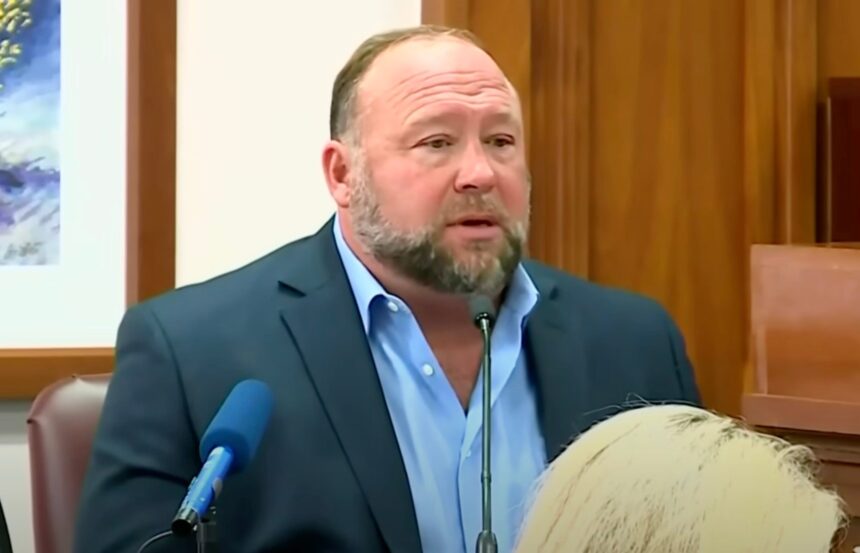This article is reprinted with permission from AbleChild and JoeHoft.com.
Article Reprinted by AbleChild legislation after Sandy Hook titled – Get Adam Lanza’s Mental Health Record
Advance notes:
A simple search related to the news coverage of Sandy Hook will show that the Sandy Hook families who lost their children are not suing Professor James Tracy. Also, it should be noted that Professor James Tracy’s legal effort to have the Supreme Court review the case under the first amendment was denied, why? Professor Tracy was not fired because of what he said, but the fact that he did not disclose any outside activities that appeared to violate his contract. – food for thought.
Indeed Alex Jones questioned the official narrative when the Sandy Hook mass shooting was covered directly by the National News with the involvement of the FBI, and the State Police.
Jones is certainly not wrong about FBI agents showing up at crime scenes unprepared and without the proper equipment, a shocking fact that came directly from the FBI agents themselves at the Alex Jones trial. The same FBI agents who are now profiting from the Sandy Hook crime scene by prosecuting Alex Jones. This agent failed to produce the FBI waiver required by FBI ethics and protocol to obtain approval to profit from the crime scene. This official FBI exemption was clearly absent in the Connecticut trial of Alex Jones. FBI agents who prosecute crime scenes for profit? This could only be the first time.
Original article:
What happened to the First Amendment, Sandy Hook?
Reference article by Jacqueline Smith. Read here.
In response to Jacqueline Smith and Professor James Tracy’s opinion, two words immediately come to mind: Toughen up. Strong reaction? yes already. But trampling on the First Amendment is serious and requires a strong response.
Smith said Professor Tracy does not have a First Amendment right to “talk nonsense.” There is no need to go further in her rambling, disjointed piece. Smith just doesn’t understand that this kind of “nonsense” is what the Founders wanted to protect.
Smith may not like, respect, or understand Professor Tracy’s thoughts and motives, but he has the right – and some would argue the duty – to think critically, and the right to support those thoughts publicly, even if they are rude to Smith, and others. , soft sensitivity.
The problem with Smith’s way of thinking, as it relates to the First Amendment, is that he believes that if speech is hurtful or offensive to others, it is inadmissible and not constitutionally protected. That’s not how the First Amendment works, as Smith’s own nasty remarks directed at Professor Tracy suggest.
Don’t forget that the Founders believed that open dialogue was so important that they created the first Amendment, not the sixth or seventh, etc. feelings
Smith’s attack on Professor Tracy’s Constitutional rights was, ultimately, due to the Professor’s questioning of the official version of events at Sandy Hook. When Smith expressed his concern that Professor Tracy crossed the line of the First Amendment by requesting Lenny Pozner anyone familiar with this important case, he knew that Smith’s event was less than fair.
The bigger question, though, is why asking about the official version is so offensive to “news people?” Professor Tracy is far from the only person raising issues about Sandy Hook, as there are millions of websites dedicated to questioning the events at Sandy Hook and, one would think, many millions more who read them. Of course Smith is not suggesting that all these people have no right to express their opinions on the matter and should remain silent if they dare to speak publicly.
What happened at Sandy Hook has serious consequences for not only the families of the victims and others connected to the tragedy, but everyone who is subject to the legislative policies that arise from the incident.
As Smith noted, the Connecticut Legislature passed costly mental health legislation a year before the investigation was launched. In other words, the legislative action was taken without full knowledge of the facts. However, the good people of Connecticut not only have to pay, but live with emotional, not fact-based decisions. By anyone’s standards, this cannot be called a responsible or wise legislature.
Ablechild, the parent organization that fights for the right to informed consent as it relates to psychiatric diagnosis and psychiatric medication, is well aware of the difficulties in gathering information about Adam Lanza’s mental health records.
Although Ablechild filed a FOIA to obtain Lanza’s mental health, toxicology and autopsy records, the state refused to release the information when Assistant State’s Attorney Patrick Kwanashie said the release of Adam Lanza’s records “could cause a lot of people to stop taking these drugs.”
The notes may shed some light on Lanza’s actions. But until now, despite a lengthy and costly investigation, no information about Lanza’s mental health in the five years before the incident has been made publicly available. Frankly, there is no publicly available information if Lanza did, or did not, receive mental health services in the five years prior to the incident. That fact hasn’t stopped ill-advised legislative measures from being rammed down the throats of Connecticut residents.
This is just one example of the issues surrounding the incident. Anyone who has read the 6700-page investigation knows there is much more. However, beyond all this, the Issue retains the right to publicly discuss any, and all, issues surrounding the official version of events at Sandy Hook regardless of which feelings may be hurt.
No, Editor Smith, you don’t get to decide who deserves a vote. You can’t judge more important First Amendment rights. You may not like the sound you hear, or the way it is used. They may be unpleasant and painful, but every American has the right to that voice. It is possible that Professor Tracy finds your opinion offensive, and he may think that you are writing this on purpose to annoy him, but he must agree that you have the right to your rude words.





